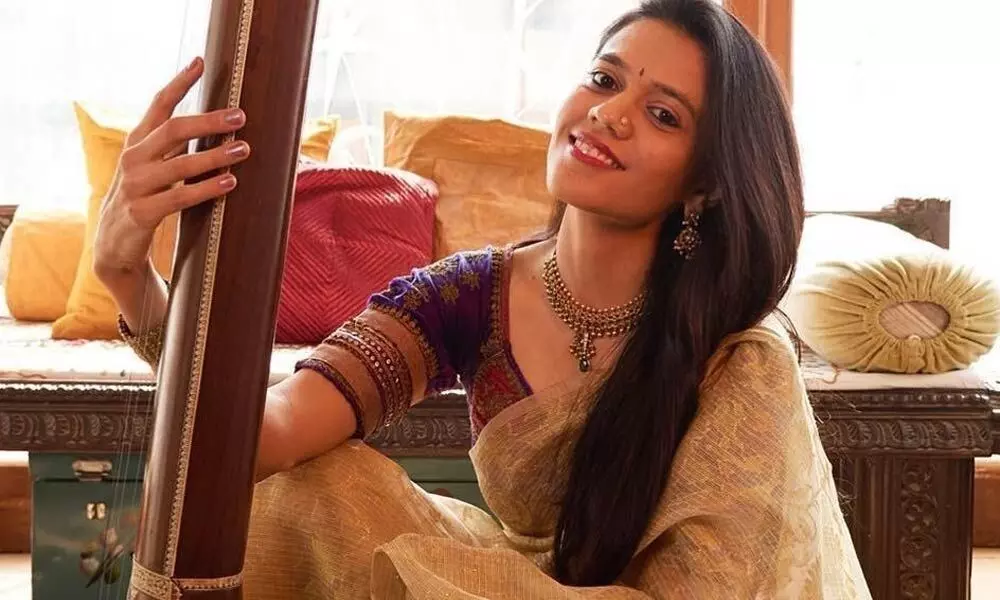Classical vocalist Nirali Kartik on the importance of festivals

Classical vocalist Nirali Kartik
Kartik, did a remote collaboration with 11 international musicians from five countries way back in 2012
There is no ancestry to speak of, no godfather to rely on, no inherited platforms...What has worked for Hindustani classical vocalist Nirali Kartik is not just extensive training, but rather a commitment to reinvent consistently. And no, the journey has not been really easy. I just kept doing what I was passionate about. Don't forget that there is limited space and very few platforms, but then I prefer to look at the positives, "says Nirali, also the founder member of the band 'Maati Baani' along with her husband Kartik Shah, which she says is a platform to showcase her versatility.
Speaking to IANS on the sidelines of the ongoing Mahindra Kabira Festival in the world's oldest city, the classical vocalist stresses that the "Maati Baani" is a space where India meets the world, and the universe acquaints itself with India. Different genres come together seamlessly here. We create what we love to hear. This project also proves that Indian classical can adapt to any genre across the world, be it funk, rock, or folk from other countries, "
However, she adds that Indian classical music always occupies the centre stage and is forever the protagonist. Insisting that, contrary to popular perception, Indian classical music allows a lot of freedom and a personal interpretation by the artist, she says, "Of course it has certain rules." A raga is like grammar; it is a structure you have been given. In that structure, one can do a lot and make the raga their own. What you perform is something very personal. A song does not give the same feeling. "
Nirali believes that it is important that an artist also know the tools through which she or he can ascertain survival. It is important to have that skill-set or life can be very tough. I am really into classical, but I am also aware that only classical will not ensure financial survival. That is why I also do a lot of popular stuff too. My husband and I constantly think of new ideas and ways to reinvent ourselves.
While digital concerts may have become the norm during the height of the Corona pandemic, she, along with Kartik, did a remote collaboration with 11 international musicians from five countries way back in 2012, at a time when there was no blueprint for such an exercise... It took several months to make, but I will never forget the experience. It proved to be addictive, and we have been doing remote collaboration consistently ever since, something that has become the norm now. It was done very professionally, and made to look like a proper music video, not a Skype recording.
While the lockdown was brutal for the art community, Nirali made it a point to delve deep into riyaaz and explore new ragas. For me, it also became an opportunity to look at ragas I didn't know. It was like going back to school.
Stressing that it is important that more festivals are conceived, the vocalist says what really defines India is culture and heritage. It is a fascinating land of stories and storytellers. Take that away, and we are not sure what will remain. Let us not take it for granted. In order to save it, it is paramount that heritage be given constant attention and youngsters be acquainted with its richness.
For her, music is a way of understanding different cultures. "That is precisely why I love collaborations. Some people learn about another country or culture through books or travel; I prefer to learn about the other's culture through music collaborations. For me, they are a way of understanding another culture. For example, I look at Portugal through Fado—to get a glimpse into the place's collective consciousness. "
Talk to her about the purists' reaction when she collaborates with artists of different genres, and Nirali smiles. "Some think that I cannot be a serious classical vocalist if I do that. But then I have a series where I bring out ragas every 15 days. And nobody can do that if he/she has not done riyaaz. I know how to prove myself, "concludes Nirali.







